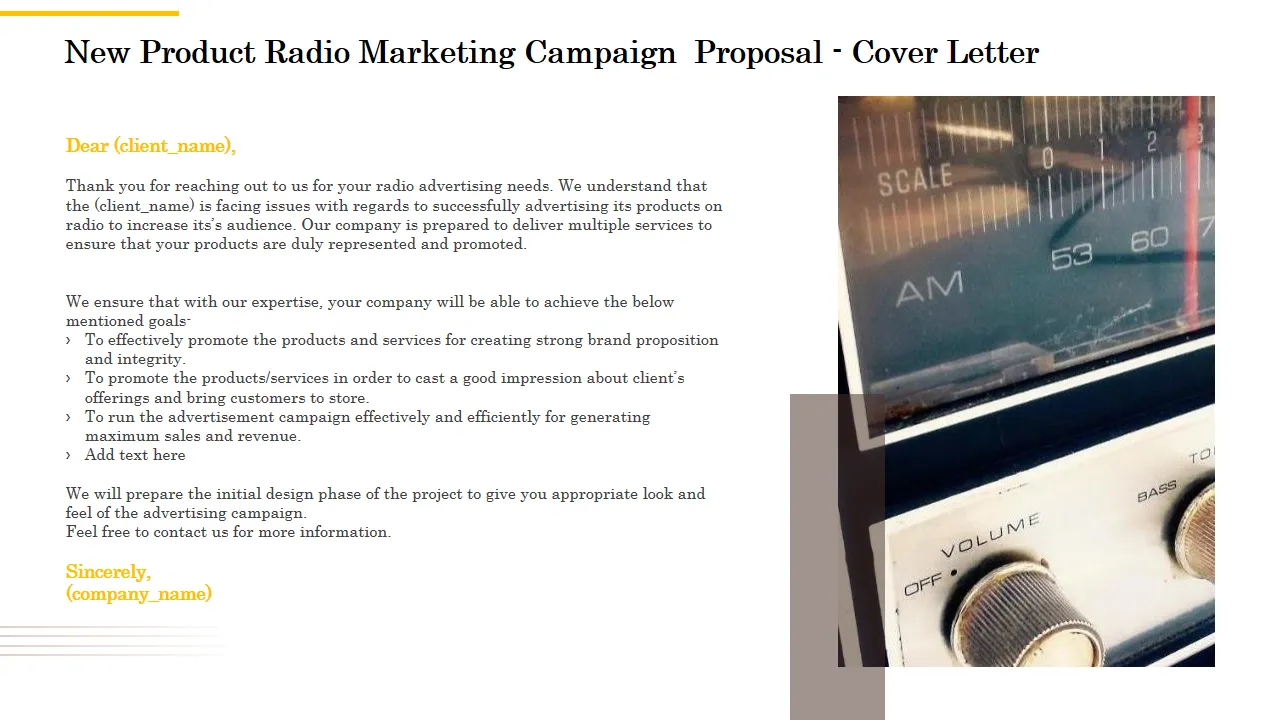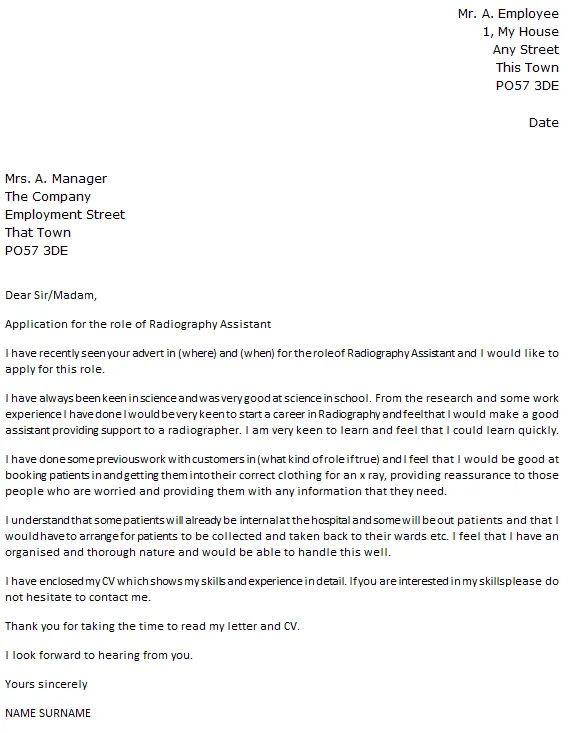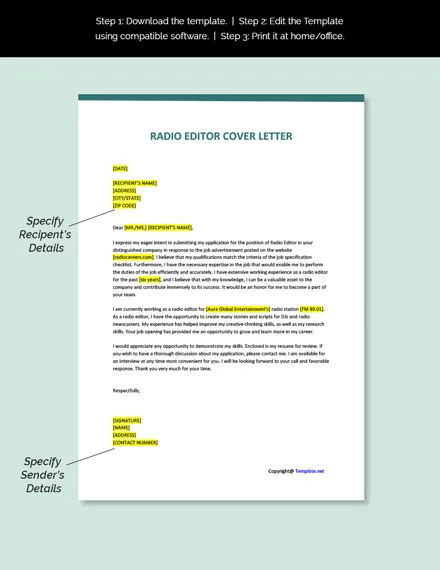Why Radio Cover Letters Matter
In the competitive world of radio, a well-crafted cover letter is your first opportunity to make a lasting impression. It’s your chance to go beyond the basic resume and showcase your unique skills, personality, and understanding of the industry. A compelling radio cover letter can significantly increase your chances of landing an interview, as it provides a platform to connect with potential employers on a more personal level. It allows you to demonstrate your enthusiasm, highlight relevant experience, and explain why you’re the ideal candidate for the role. A great radio cover letter is not just a formality; it is a strategic tool designed to set you apart from the competition and get you noticed in a crowded field. By showcasing your passion and understanding of the industry, you can increase the likelihood of securing an interview and ultimately, your dream job in radio. This is a crucial first step in making your mark on the industry. A poorly written one, on the other hand, can immediately disqualify you.
Highlighting Your Radio Experience
Your cover letter should effectively showcase your radio experience, whether it’s on-air, behind the scenes, or a combination of both. Provide specific examples of your accomplishments and the positive impact you made in previous roles. Quantify your achievements whenever possible. For instance, instead of saying you increased listenership, state the percentage increase achieved through your efforts. Detail the skills you utilized, such as on-air performance, content creation, technical proficiency, or management responsibilities. This is your chance to demonstrate you can perform the job. Be sure to tailor the experience you share to the specific requirements of the job. Analyze the job description carefully, identifying the skills and experiences most relevant to the role. If you lack direct experience, emphasize transferable skills from other areas. Be honest and transparent about your experience, but focus on the skills you have that would be of benefit to the station.
Showcasing Your Personality

Radio is a personality-driven industry, so your cover letter must reflect your unique qualities and charm. Your personality is what makes you stand out. Inject your authentic voice into the letter to give potential employers a genuine sense of who you are. Use a conversational and engaging tone that aligns with the station’s style and target audience. If you’re applying to a station that emphasizes a more informal style, let your personality shine through. Share anecdotes that demonstrate your passion for radio and your ability to connect with listeners. Consider including a brief story that showcases your creativity, humor, or ability to overcome challenges. The goal is to go beyond the resume and offer a glimpse of the person they’d be hiring, making you more memorable and increasing your chances of success. This is your chance to make them remember you.
Tailoring Your Letter to the Station
A generic cover letter is likely to be overlooked. Customize each letter to the specific station and role you are applying for. Research the station’s programming, target audience, and overall brand identity. Demonstrate your understanding of the station’s unique qualities and explain how your skills and experience align with its values and objectives. Mention specific shows or on-air personalities that you admire, and explain why their approach resonates with you. Highlight how you can contribute to the station’s success and help it achieve its goals. If the station uses a specific style, or a certain type of music, show you understand their purpose. This level of personalization proves you’ve taken the time to do your homework and are genuinely interested in working there, increasing your chances of making a positive impression.
Demonstrating Your Knowledge of the Industry
Showcasing your industry knowledge is essential to demonstrate your commitment and insight. Demonstrate your understanding of current trends, challenges, and opportunities in the radio landscape. Mention relevant industry publications, podcasts, or blogs you follow. Discuss any industry events you’ve attended or participated in. If you have a grasp of the legal or regulatory aspects of radio, such as FCC guidelines, mention this. Highlighting your awareness of the industry landscape positions you as a candidate who is not only passionate but also informed and prepared for the role. Mentioning your understanding of digital trends is also beneficial. Emphasize your knowledge of social media, podcasting, and other platforms that complement traditional radio broadcasting. This shows that you understand how to reach and engage with audiences across multiple channels.
Emphasizing Your Passion for Radio

Passion is contagious and essential in the radio industry. Clearly articulate your love for radio. Share what excites you about the medium. Discuss your favorite aspects of radio, whether it’s the ability to connect with listeners, the creative storytelling, or the thrill of live broadcasting. Provide specific examples of what inspires you. Tell them what makes this your dream job. Explain how you’ve actively pursued your passion for radio, whether through volunteer work, personal projects, or attending industry workshops. Let your enthusiasm shine through in every sentence. A genuine passion for radio is a powerful motivator and a key attribute that employers seek. Show them why you love it. This will make you a memorable candidate.
Including a Strong Call to Action
Your cover letter should end with a clear call to action. Tell the hiring manager what you want them to do next. Express your interest in an interview and make it easy for them to contact you. Provide your contact information in a clear and accessible manner, including your phone number and email address. Thank the hiring manager for their time and consideration. Reiterate your enthusiasm for the opportunity and your confidence in your ability to contribute to the station’s success. A strong call to action encourages the hiring manager to take the next step, increasing your chances of securing an interview. Finish with a professional closing, such as “Sincerely” or “Best regards.” Always proofread your cover letter carefully before submitting it. Ensure it’s free of grammatical errors and typos.
